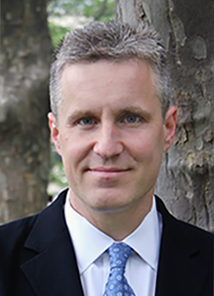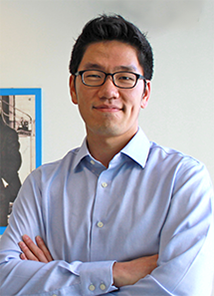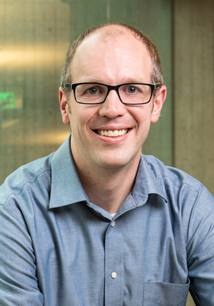July 9, 2025
Martin Bazant has been appointed Chevron Professor of Chemical Engineering
 The Chevron Chair of Chemical Engineering was established in 1981 through a grant of the Standard Oil Company of California to be awarded to a faculty member working in an energy-related area. The Chair was given in honor of Mr. George M. Keller 1948 CH, the retiring Chevron CEO at the time, a longstanding member of the Chemical Engineering Visiting Committee, and a member of the MIT Corporation. Mr. Keller died in 2008.
The Chevron Chair of Chemical Engineering was established in 1981 through a grant of the Standard Oil Company of California to be awarded to a faculty member working in an energy-related area. The Chair was given in honor of Mr. George M. Keller 1948 CH, the retiring Chevron CEO at the time, a longstanding member of the Chemical Engineering Visiting Committee, and a member of the MIT Corporation. Mr. Keller died in 2008.
Martin Z. Bazant holds a PhD in condensed matter physics from Harvard University and joined the MIT faculty in Mathematics in 1998. As an applied mathematician, he has made fundamental contributions to theoretical electrochemisty, electrokinetics, and fluid mechanics. In 2009, he joined Chemical Engineering at MIT and started an experimental laboratory, focused on electrochemical systems for energy (including research on Li-ion batteries and fuel cells) and the environment. His more recent honors include election as the inaugural President of the International Electrokinetics Society (IES) and as an Electrochemical Society Fellow. Bazant was elected as a member of the National Academy of Engineering in 2025.
Bazant has shown great dedication to the education of chemical engineering graduate students. He is well-known as an innovator in and champion of digital learning, serving as the department’s first digital learning officer. His creation of the first online graduate course in transport phenomena was amazingly well-timed to facilitate the transition to remote learning during the COVID-19 pandemic 5 years ago. Bazant also participated in the creation of the online Math Boot Camp for Engineers course that has been beneficial for both MIT ChemE graduate students and those in other chemical engineering graduate programs.
Kwanghun Chung has been appointed Eugene McDermott Professor in the Brain Sciences and Human Behavior
 This chair was established in 1979 by a grant from the Eugene McDermott Foundation of Dallas and was named for the late Eugene McDermott, founder and former president and chairman of the board of Texas Instruments, Inc., and life member of the MIT Corporation.
This chair was established in 1979 by a grant from the Eugene McDermott Foundation of Dallas and was named for the late Eugene McDermott, founder and former president and chairman of the board of Texas Instruments, Inc., and life member of the MIT Corporation.
Kwanghun Chung received his bachelor of science in chemical engineering in 2005 from Seoul National University in Korea, and his PhD in chemical engineering in 2009 from the Georgia Institute of Technology. His postdoctoral work was in the lab of Karl Deisseroth at Stanford; it was there that he established a new method, CLARITY, for imaging the brain. After arriving at MIT in 2013, Chung expanded the use of CLARITY and introduced additional methods, including: stochastic electro-transport (aka SE) to move labeled molecules to achieve uniform tissue distributions; chemical approaches to synchronize the preservation of tissues and control labeling therein to enable multiple rounds of multiplexed imaging (aka SWITCH); and, expansion strategies to facilitate super-resolution imaging of subcellular structures in intact tissues (aka MAP). He also developed a way to more completely protect biological functional groups when the tissue is expanded (aka SHIELD), and to transform tissues into elastic hydrogels to enable both stretching (promoting delivery of macromolecules like antibodies) and compression (facilitating transport of low molecular weight probes; ELAST). Chung is the lead PI on a new NIH Brain Atlas initiative involving two dozen investigators and 11 institutions that launched this spring.
Chung’s research has been recognized with an NIH New Innovator Award and a Presidential Early Career Award for Scientists and Engineers (PECASE). With a joint appointment in IMES, and affiliations with Brain and Cognitive Sciences (BCS), the Picower Institute for Learning and Memory, and the Broad Institute, his teaching and service span multiple units. Within MIT ChemE, Chung has been a well-regarded and very effective teacher in 10.302 (Transport Processes), and he has been an active member of our graduate admissions committee. Chung also recently served as a first-year advisor to undergraduate students.
The McDermott Chair is an Institute Chair administered by the Provost’s Office, and is very competitive. Chung’s selection as the chair holder recognizes his seminal contributions to Brain Sciences, with the promise of more to come.
Zachary P. Smith has been appointed Edwin G. Roos (1944) Associate Professor of Chemical Engineering
 Edwin G. Roos was born on December 22, 1923, in Bronx, NY. He enrolled at MIT in 1940 at the age of 16, as a member of the class of 1944, but his education at MIT was interrupted by World War II, in which he served in the US Army as a first lieutenant in Germany. Upon returning from the war, he continued his degree, graduating in 1947. Roos worked briefly as a field engineer at Esso before taking a job at Williams Real Estate, where his father had become a partner in 1929. He eventually rose to the position of executive vice chairman. Roos passed away in December 2021, a few weeks before his 98th birthday. He established the Roos Professorship in 2015.
Edwin G. Roos was born on December 22, 1923, in Bronx, NY. He enrolled at MIT in 1940 at the age of 16, as a member of the class of 1944, but his education at MIT was interrupted by World War II, in which he served in the US Army as a first lieutenant in Germany. Upon returning from the war, he continued his degree, graduating in 1947. Roos worked briefly as a field engineer at Esso before taking a job at Williams Real Estate, where his father had become a partner in 1929. He eventually rose to the position of executive vice chairman. Roos passed away in December 2021, a few weeks before his 98th birthday. He established the Roos Professorship in 2015.
Zachary Smith received his honors bachelor’s of science in chemical engineering from Pennsylvania State University in 2008, and his PhD in 2014 from the University of Texas at Austin. He completed a postdoctoral appointment at the University of California, Berkeley, before joining the MIT faculty in January 2017. At MIT, Smith has established a unique membrane design program that generates materials incorporating rigid, glassy polymers with finely controlled nano porosity or defined free volume and composite systems with polymers using MOF systems to address key challenges in membrane design. Although the promise of polymer membranes has been pursued for some time, Smith has brought new concepts and new, record-breaking materials into the field to generate membranes with an unusual combination of highly selective properties and high permeability, making membrane systems much more meaningful and economically feasible. His approaches address the difficult separations that have proven challenging yet essential to have real impact.
Smith’s research has been recognized with the Department of Energy (DoE) Young Investigator Award, the Office of Naval Research (ONR) Young Investigator Award, the American Chemical Society Petroleum Research Fund (ACS PRF) Young Investigator Award, the NSF CAREER Award, and the highly prestigious and competitive AIChE Kunesh Award, awarded to the top young researcher in separations technology. Within the department, Smith has renewed the content in both 10.467 (Polymer Science Laboratory) and 10.32 (Separation Processes). He has also been an active member of the Graduate Admissions Committee, represented the department as our liaison to PPSM, and served as the faculty co-chair of the safety committee.

